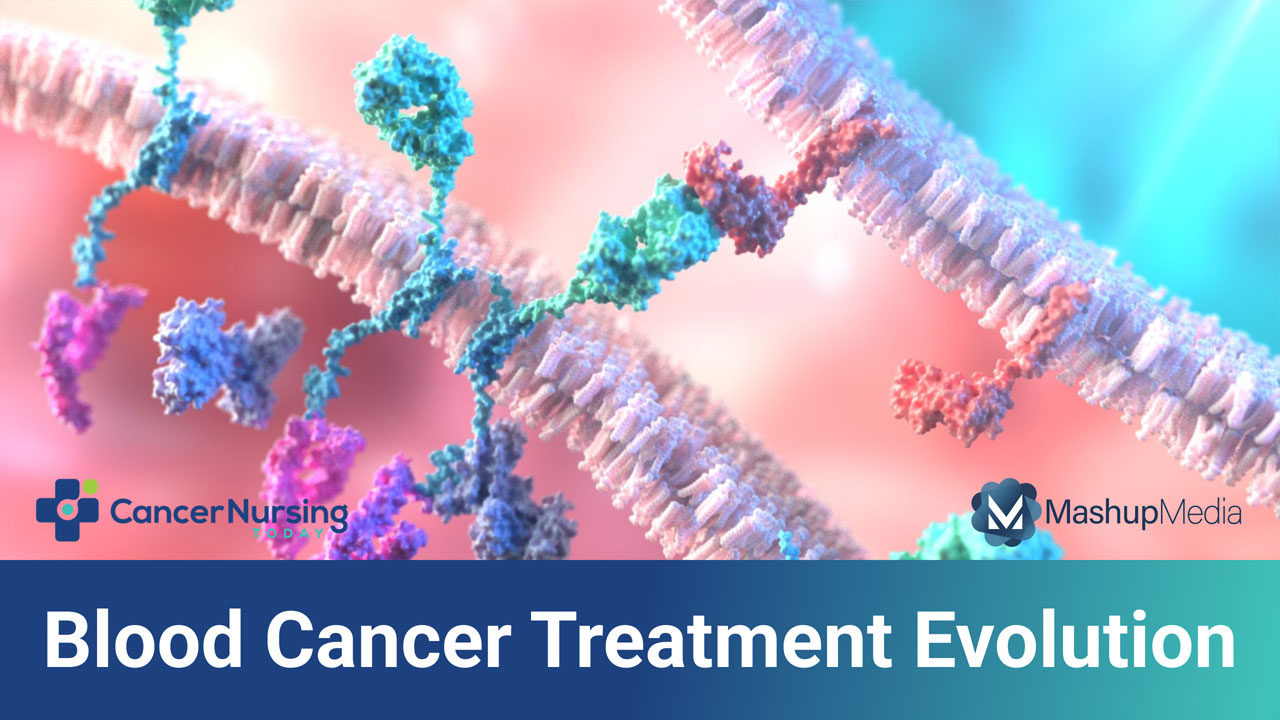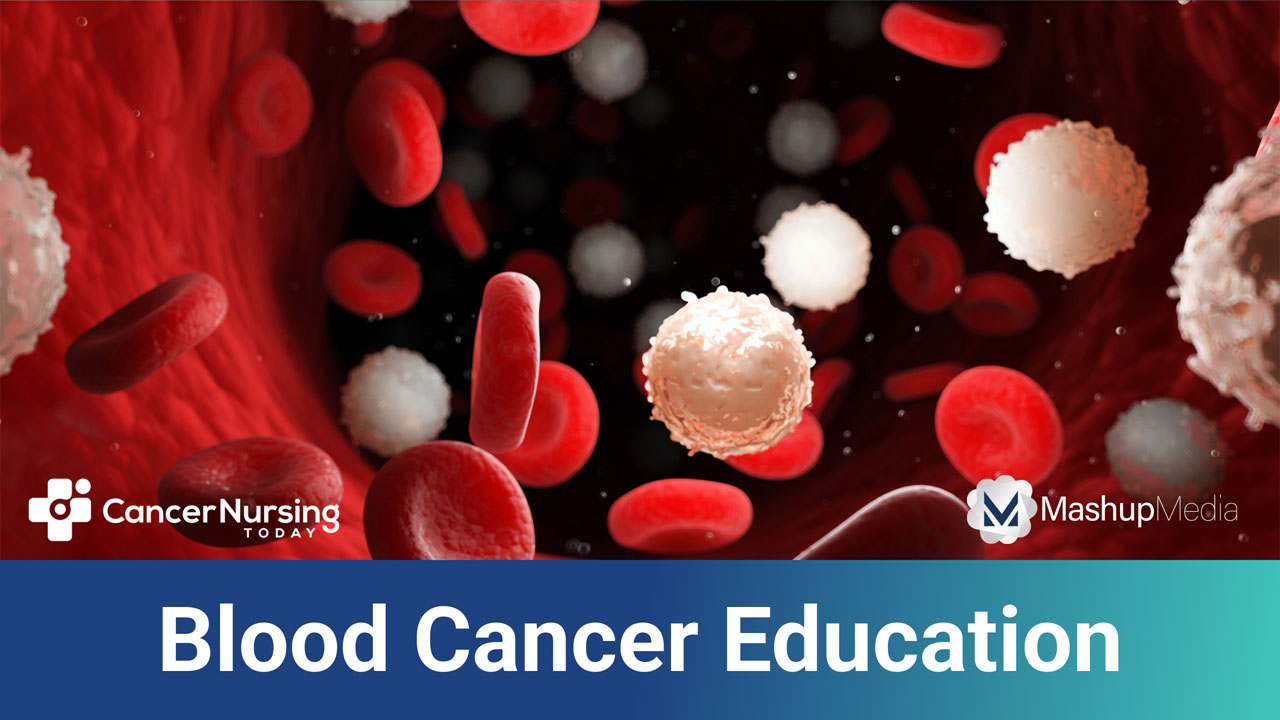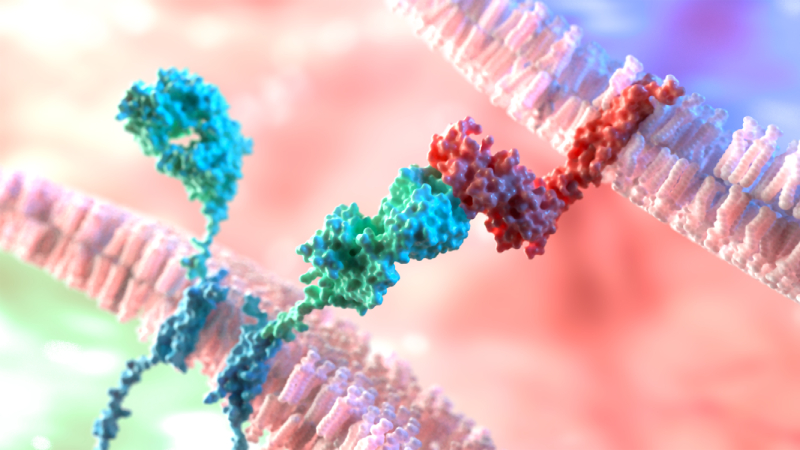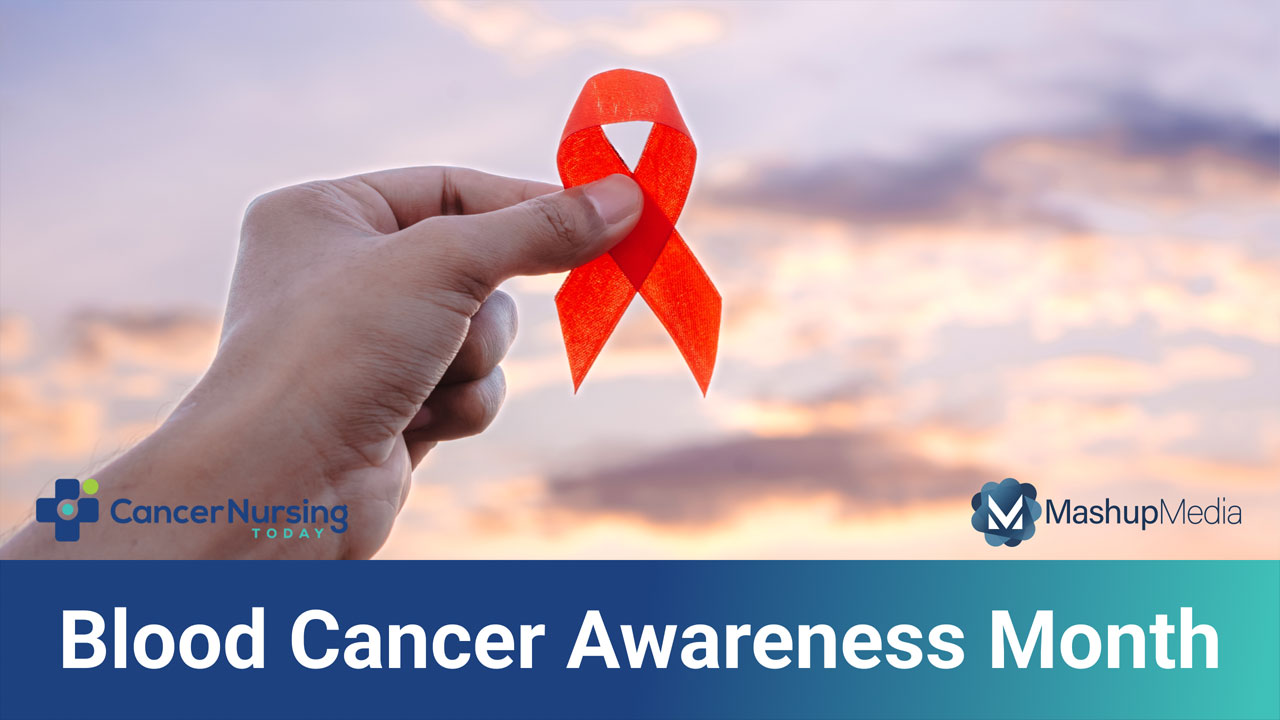Blood Cancer Awareness Month
In honor of Blood Cancer Awareness Month, marked annually in September, our editors are highlighting important information for oncology nurses who care for patients with hematologic malignances.
Blood Cancer Awareness Month represents a critical opportunity to provide education on early signs and symptoms.
Researchers evaluated the renal status of more than 250 patients receiving TKIs in a chronic myeloid leukemia clinic.
Research presented at the Annual Meeting of the Society of Hematologic Oncology provided insights on outcomes and risks.
Hear about an NP's journey into hematologic oncology and how she has seen the treatment landscape evolve.
Learn how nurses can educate their peers, their patients, and the public about blood cancers and their symptoms.
A study of more than 10,000 patients illuminated the characteristics and needs of patients who are in remission.
Learn how an innovative rehabilitation model improved clinical outcomes and patient satisfaction with nursing care.
Learn about the diverse unmet needs and potential solutions related to the experiences of patients and caregivers.
New research shows that major depressive disorder is associated with certain outcomes in this population of patients.
Nurses, nurse administrators, physician assistants, and oncologists/hematologists shared their insights with researchers.
Beth Faiman, PhD, MSN, APN-BC, AOCN®, BMTCN®, FAAN, FAPO, shares 3 key tips for nurses caring for these patients.
A subgroup analysis of CARTITUDE-4 evaluated ciltacabtagene autoleucel in functionally high-risk multiple myeloma.
Digital interventions that target physical and mental well-being are needed for adult long-term survivals of ALL.
The survey results will be used to formulate recommendations to improve patient involvement in decision making.
Nurses may be able to play a role in aligning views between patients and hematologists on prognosis and goals of care.
Blood Cancer Awareness Month is marked in September each year.
Advertisement

















 © 2025 Mashup Media, LLC, a Formedics Property. All Rights Reserved.
© 2025 Mashup Media, LLC, a Formedics Property. All Rights Reserved.